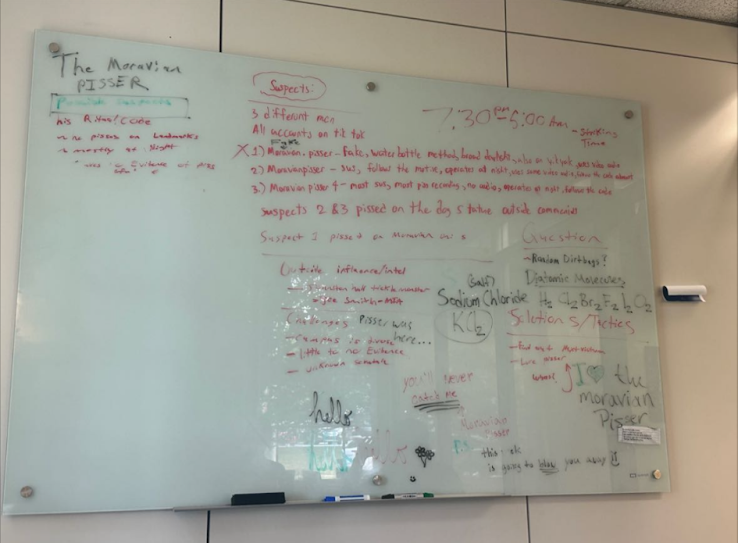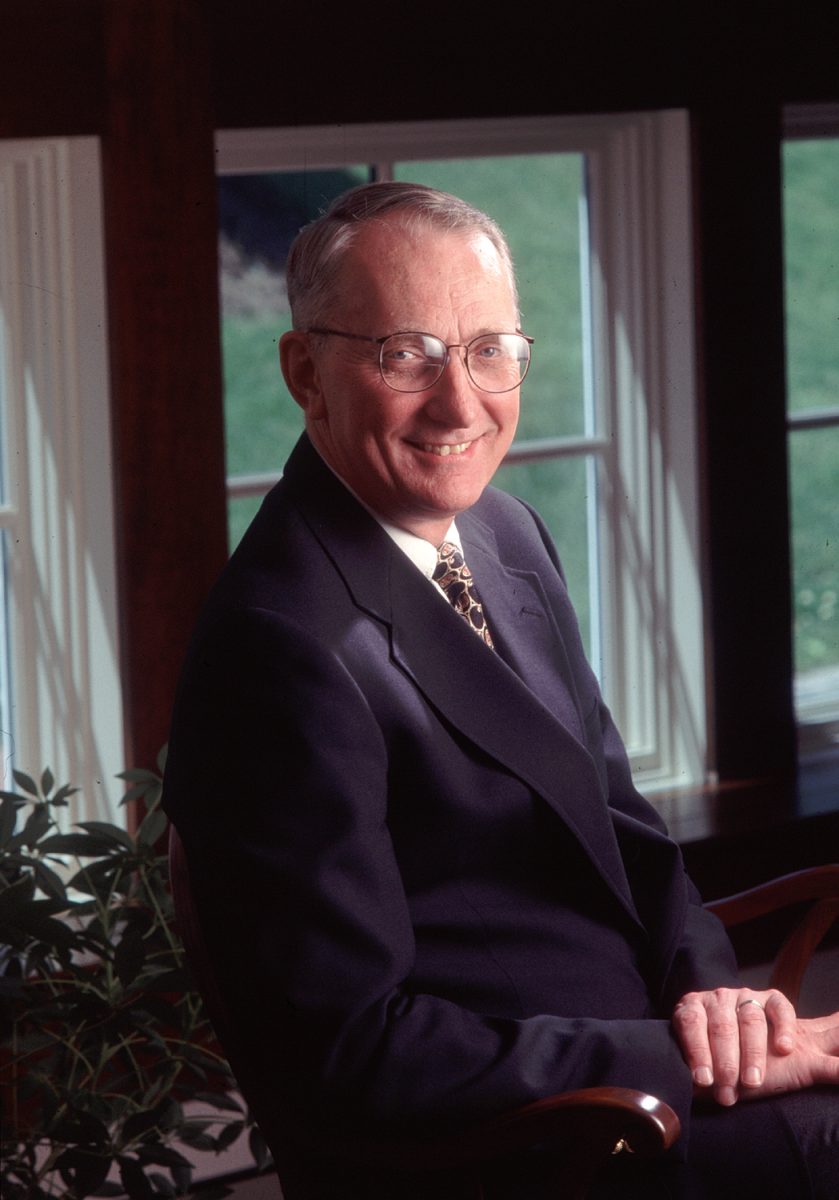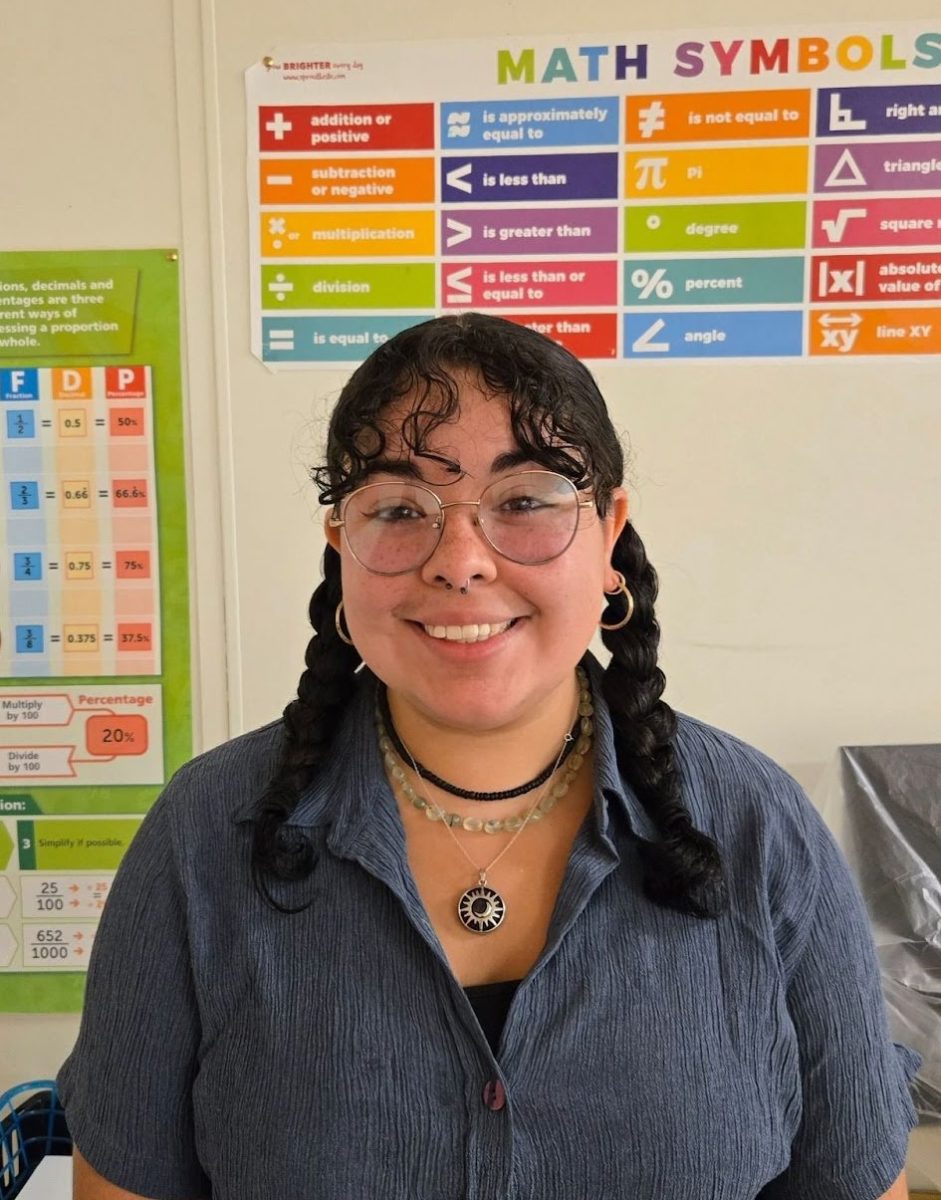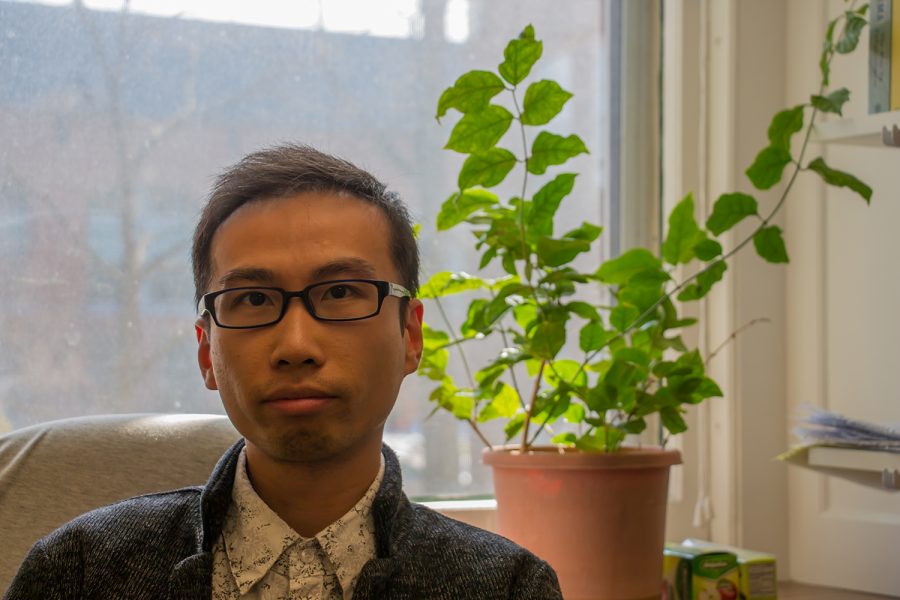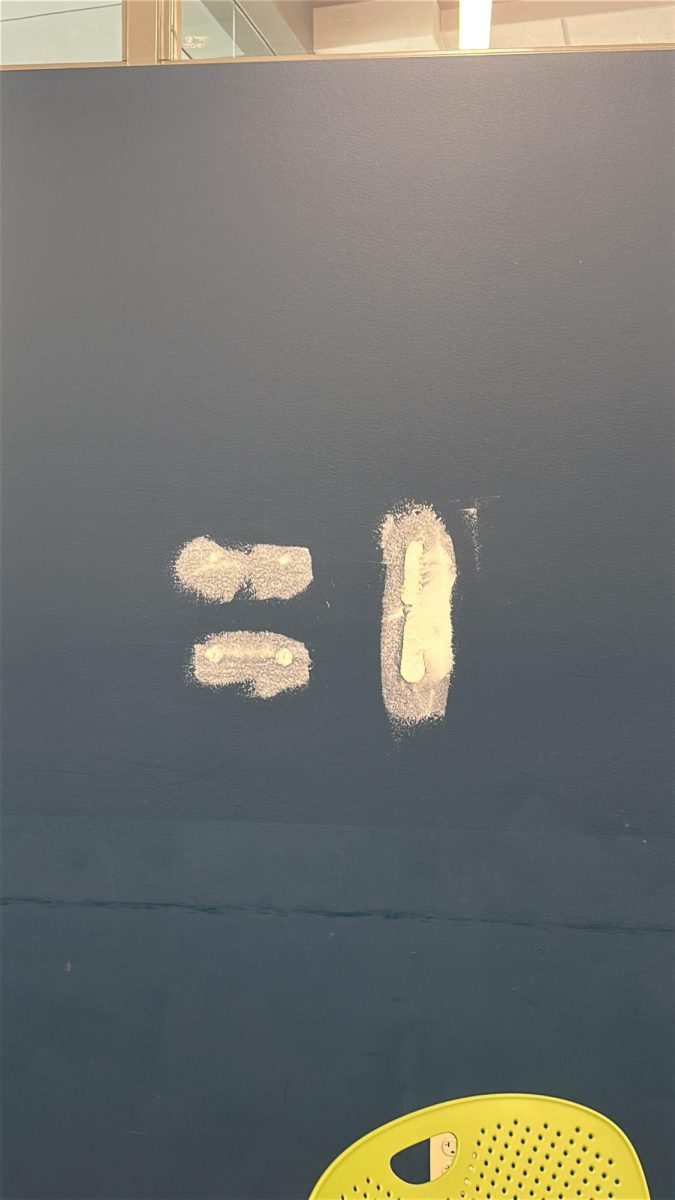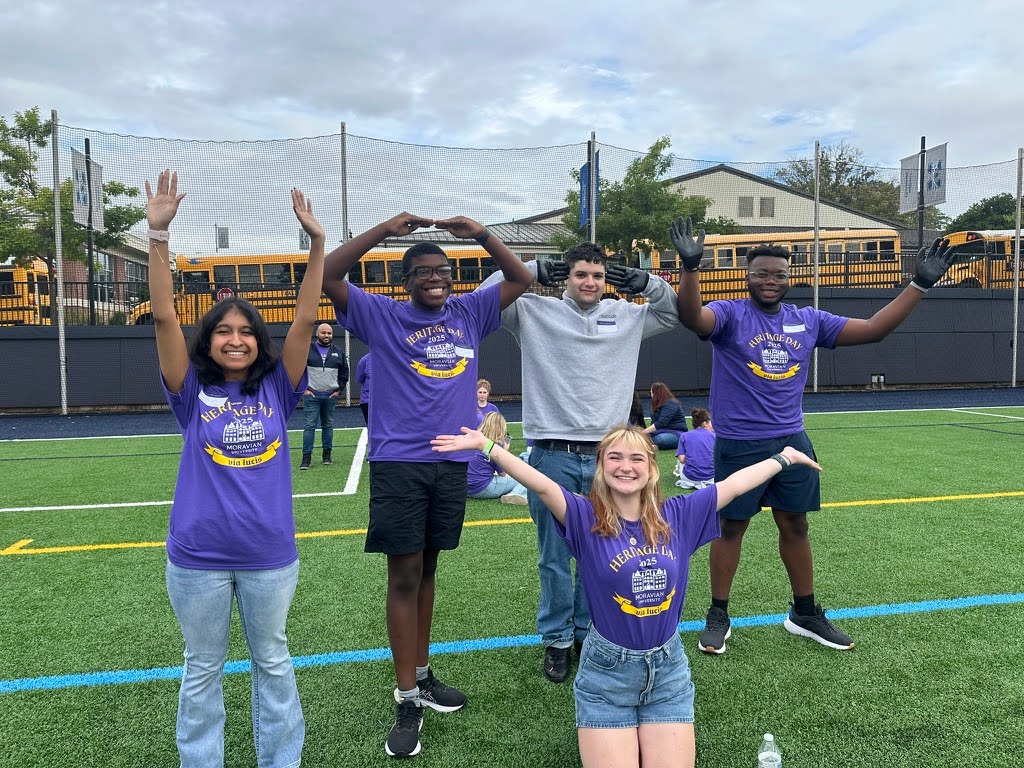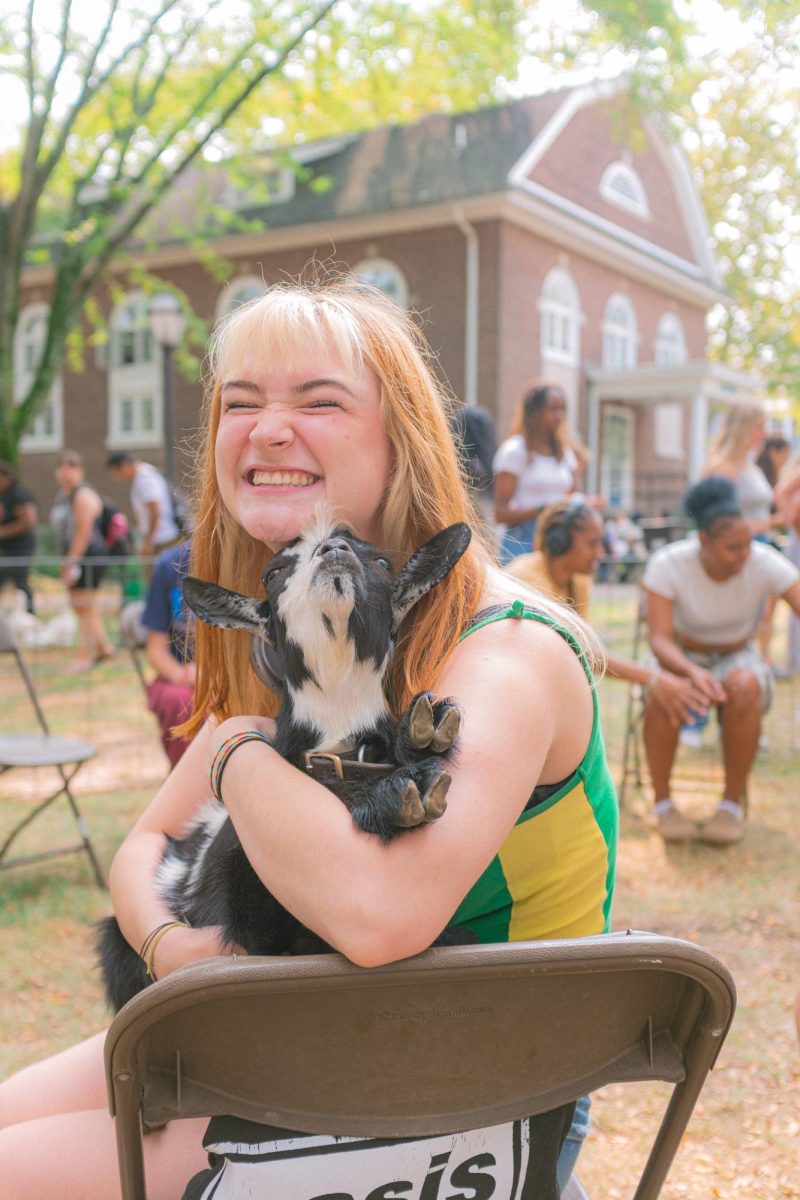
In the office of Moravian University’s Provost, Dr. Carol Traupman-Carr, there is a piece of printer paper with a map of the U.S. hung on the wall with sticky tack. All but 13 states are colored in with crayons. This map represents every state that has a chapter of the Alpha Alpha Alpha Honor Society, with the Alpha chapter being founded at Moravian by Traupman-Carr.
A first-generation student herself, Traupman-Carr was disappointed by the negativity clouding conversations about these students.
“I wanted to change the narrative,” she said. “The narrative about first-gens, too often, is that they drop out at higher rates … Now that might be true, but there’s a flip side to that, which is those who don’t drop out and those who do succeed.”
Tri-Alpha was founded on March 24, 2018, when over 100 Moravian undergraduate students, faculty, staff, alumni, and a member of the board of trustees were inducted.
To qualify for induction, undergraduate students must have earned at least 30 credits toward an associate or baccalaureate degree, have an overall 3.2 GPA on a 4.0 scale, and have parents who have not earned a bachelor’s degree. Graduate students may be admitted if they have completed at least one study term and have a 3.5 GPA.
Moravian has a long history of serving first-generation students, starting from its founding in 1742. At that time, there were only five universities in the U.S., and they all served rich, white men. No institution educated women or the poor. People in the Moravian community couldn’t afford to go to Europe, which is where many rich young men went.
“So, if you look at it that way, serving first-gens is part of our history, all the way back to its origins because there were so few people in the community who founded Bethlehem that actually had a university education, and none of the women did,” said Traupman-Carr. “It’s part of our DNA.”
In the fall of 2017, Moravian was working to rebuild its student success efforts. In previous years, the institution had a chapter of Phi Eta Sigma Honor Society, which became inactive due to financial issues and a lack of faculty interest in running the organization. Traupman-Carr sought to revive the organization.
“I liked the idea of bringing Phi Eta Sigma back to celebrate the achievements of students in their first year,” she said.
During this same time, in higher education discourse, there was a lot of negativity surrounding first-generation students. Some of the key discussions were about the economic and academic disadvantages that these students face.
Traupman-Carr knew it was not an accurate assessment of all first-generation students.
“I took it personally as a first-gen student. I never perceived my family as [economically disadvantaged] growing up,” she said. “I know people who are academically disadvantaged who are not first-gen, and I know people who are economically disadvantaged who are not first-gen.”
Traupman-Carr wanted to find an honor society that would celebrate first-generation students. That is when she discovered that there was no such society.
Chris Hassay, associate director of the Center for Academic Excellence, also noticed a lack of resources for first-gen students as an undergraduate at Moravian. “In terms of resources, when I was at Moravian, there really [weren’t] any [resources available] for first-gen students. Every year there are more resources for first-gen students, now,” he said.
Traupman-Carr’s experiences as a first-generation student gave her perspective on what this group of students needed and what resources would help them succeed.
“Someone that isn’t first-generation doesn’t know what it’s like. They can’t understand what that experience is like and how to make resources to help us,” said Mia Espinal ‘27.
Emily Nguyen ‘27 agrees, “People who aren’t first-generation don’t understand what it’s like trying to navigate education with other economic issues that first-gen students face.”
Traupman-Carr envisioned that upperclassmen students would assist younger students with tasks such as adding/dropping courses, explaining why it is better to withdraw from a course rather than fail it, and explain other information that some first-generation students might not know.
“First-gens, in particular, need to support other first-gens. The juniors and the seniors need to be able to support those who are just beginning their journey.”
Hassay agrees with this sentiment. “I think it’s awesome that as an institution we are pioneering recognition for first-gen students, not because we have a big population but because it is a group of students that deserves the recognition,” he said.
Current President of Tri-Alpha, Ebony Saccento ‘24 has felt this impact. “I didn’t really know what I was doing when applying to and navigating college … I was inducted into Tri-Alpha my sophomore year and I was around people that were in the same situations as me. [The] upperclassmen were super helpful and made me think about resumes, registering for classes, and other things I didn’t really think about before.”
So, Traupman-Carr made an appointment with President Grigsby to discuss starting a first-generation honor society at Moravian; he was immediately supportive. She also discussed the idea with colleagues at LVAIC institutions and other universities.
“I realized I had talked about it so much, I needed to get it started quickly, or else someone was going to steal my idea.”
Traupman-Carr selected the name Alpha Alpha Alpha for the honor society because it celebrates students who are the first go to got college in their family and therefore she wanted a name that would appear first in an alphabetical list.

Before the first induction ceremony, and logo had to be created to print certificates, and then a pin design was made. The logo was designed by a Moravian student and incorporates Moravian’s blue color as well as the Moravian star.
Members of Tri-Alpha are inducted during their sophomore year or later, allowing for a cohort of first-generation students to host events within their institution and support each other. The GPA requirements serve as an incentive and motivation for first-generation students to dedicate themselves to achieving higher grades. The dues required to join Tri-Alpha – $20 per student – are much lower compared to other honor societies.
All of these details were decided with the experiences and challenges that first-generation students face in mind.
First-generation students often face a lot of confusion and are unaware of important information.
“As a first-generation student, I was very unaware of what college was going to be like,” said Alvert Hernandez, assistant dean for Inclusive Excellence. “I only went to school because that is what my mother wanted. None of my family understood the expectations or the difficulty of being a college student, so it was really difficult to manage my family responsibilities, off-campus jobs, and school responsibilities.”
Hassay had a similar experience. “As a first-generation student, [I have found] there’s a lot of the college experience that is familially embedded. In my own experience, my family’s lack of understanding of the college experience guided how I navigated my time at school, both for better and worse,” he said.

Currently, there are 626 first-generation students at Moravian, making up approximately 35% of the undergraduate student population. Tri-Alpha has served as one of the many resources on campus created to support them.
“I tried to get involved in everything, mainly trying to make friends,” said Sara Turkdonmez ‘25. “When I made a friend and wanted to tell a story about my family, they wouldn’t get it because they had such different experiences …. When I actually started joining first-gen activities and clubs, I started to find people that related to my story; I recognized what similarities we have.”
Other students had a different approach, being hesitant and not knowing how to get involved on campus.
“I know freshman year, my fall semester, I was very distant and didn’t want to get involved,” said Arly Hernandez ‘26, president of the First-Generation Student Union. “I didn’t know how to get involved, but then I ended up meeting Alvert and Michelle and they really got me out of my comfort zone. My spring semester I started getting more involved and Alvert and I worked on forming the first-gen student union.”
Tri-Alpha spread its influence across the U.S., with chapters in 37 states. The goal of the society – to support and uplift first-generation students and honor their achievements – has been felt at other institutions as well.
AnnMarie Ekladious, a sophomore at The College of New Jersey, was inducted into one of the first classes of Tri-Alpha at her institution and was a student speaker at her ceremony.
“Being first-gen has not been easy, especially navigating the troubles that may come with it,” she said. “I very proudly spoke about my own personal story and how it uplifts me. Through Tri-Alpha, I have been able to meet other students, faculty, and staff with similar stories and struggles. We have … become a resource on campus.”
Traupman-Carr hopes to continue expanding Tri-Alpha’s impact both within the Moravian community and beyond. At Moravian, the goal is to create a robust community by connecting current first-generation students and alumni with each other. With the formation of the First-Generation Student Union, Traupman-Carr hopes to build a partnership between the organizations.
These partnerships and initiatives connect first-generation students with each other as well as non-first-generation students working to benefit the entire student body.
Saccento has been working with Traupman-Carr to expand this community. “This semester we have made an impact on campus, trying to get first-gen students together with different events such as bingo. We will be making a garden at the 9/11 memorial and will be the sole community on campus maintaining that space.”
Tri-Alpha’s presence on campus will impact the entire campus community.
“I strongly believe that resources that benefit our first-generation students can benefit all students since the majority of our resources for first-generation students focus primarily on promoting awareness of on-campus resources and getting connected to the Moravian community,” said Hernandez.
Beyond Moravian, Traupman-Carr would like to connect first-generation students from different institutions. Previously, she attempted to hold a virtual conference to discuss best practices for first-generation students, but there were not enough people able to attend. She hopes to hold this conference in the near future.
With the dues that students pay when joining the honor society, Traupman-Carr hopes to see a scholarship fund created to support first-generation students’ continued education.



